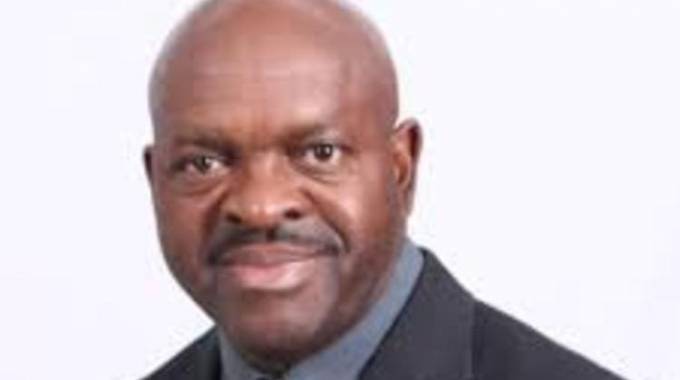
The Sunday Mail

The Confederation of Zimbabwe Industries (CZI) appointed businessmen Henry Ruzvidzo as its new president. Our senior business writer Tawanda Musarurwa caught up with the new CZI president to find out his plans for his term and his perspectives on the situation prevailing in the manufacturing sector.
Tawanda Musarurwa (TM): Congratulations on your recent appointment as the new president of the Confederation of Zimbabwe Industries. Can you give us a brief professional background about who Henry Ruzvidzo is?
Henry Ruzvidzo (HR): Henry Ruzvidzo is an engineer and manager with many years of experience in diverse process industries which include mineral processing, chemical and fertiliser manufacturing, roof tiles, board and furniture manufacturing. He has a good understanding of the forestry industry as well as the retail sector. Henry has been active in the CZI structures for a number of years, which included membership of the industrial associations, the business ethics and standards and the funding and investment standing committees.
TM: What is your vision for CZI in respect of its role going forward?
HR: I see CZI continuing to advocate for a business environment where businesses are not constantly dealing with change, an environment where businesses are champions for the economic agenda and an environment where investors feel confident to invest for the long term. I see CZI championing the unification of the agenda for all business enterprise. Closer to home I see CZI focussing on delivering solutions for the problems faced by its members and being a source of up to date information for its stakeholders.
TM: What would you say is the single biggest challenge affecting local industry today?
HR: Local industry is faced with a multiplicity of challenges, the biggest of which is access to appropriate capital domestically and internationally.
TM: And the other main challenges?
HR: The adjustments that businesses frequently have to make when policies change, foreign currency availability, electricity shortages, difficult doing business environment particularly costs and time losses associated with the regulatory environment and inflation. Market challenges caused by competition from imports across all sectors.
TM: As a representative body for industrial firms, what strategies do you have or are you mulling to deal with these key challenges?
HR: In addition to lobbying, we will as far as possible participate in problem solving with other stakeholders. We will as far as possible input into policy formulation so that our voice is deployed in new policies and regulations. We plan to participate fully in developing and implementing strategies to operationalise the Local Content and the National Industrial Development Policies. We will continue to advocate for progress on “the ease of doing business”. We plan to develop multi-sector teams that will research and proffer solutions for the key issues in the economy that include monetary and fiscal issues, Energy and Infrastructure issues and Agro Industry issues.
TM: Some of the challenges facing Zimbabwe’s industry have been prevalent over the years, decades even. Do you think the CZI is adequately capacitated to deal with some of these long-term problems?
HR: As stated earlier, CZI can-not find the solutions on its own and will call upon other business member organisations to partner CZI in tackling challenges confronting business.
TM: The CZI has over the years lobbied for free market economics. In your view can Zimbabwe’s industries compete effectively with their regional and global peers? And what are your views on protectionism?
HR: There is no perfectly free market, a policy environment that encourages the free operation of the market as far as possible has been shown to be very effective. The focus ought to be on creating an efficient low cost environment for businesses. Zimbabwe has its special historical challenges which require some incubation policies to allow time for companies to catch up with technology and to re-establish export markets.
TM: I’m sure you have read through the new Zimbabwe National Industrial Development Policy (ZNIDP) and the attendant Local Content Strategy. Do the policies have what it takes to revive the country’s industrial fortunes?
HR: The policies give direction, strategies and implementation modalities require the private sector to be engaged and active. The ZNIDP has given direction and has sufficient detail for development of the required growth strategies.
TM: And how long do you think it will take for the local industrial sector to start kicking?
HR: That’s a very difficult question, I dare say though with the right policies in place, transformation can happen rapidly as has been demonstrated by other economies — Rwanda, Singapore and China are good examples. In 2017/18 industry was beginning to show signs of fast transformation which has, unfortunately been interrupted by recent changes in the macro environment. Accelerated growth to restore capacity utilisation from the current lows is initially very possible. The opportunity exists for fast industrial development and will depend on the decisions and strategies that are adopted as we move forward since the macro-economic changes ushered in as part of the TSP.
TM: Last but not least, any additional thoughts on Zimbabwe’s industrial future?
HR: The future of industry will be determined by the extent to which we can get consensus on the importance of industry in employment, in creating national savings by reducing imports, in stabilising inflation and increased revenue flows to the fiscus. Industry has linkages to all other sectors of the economy and plays a catalytic role for the development of the sectors such as banking, farming, mining, tourism, retail and even real estate. The multiplier impact of industrial activity is often underestimated and is lost to the expediency of lowly priced goods for consumption. A national resolve that puts a premium on production and subordinates all decisions, policies and resources to maximising production at all levels will move the economy in the right direction.



